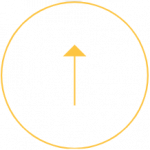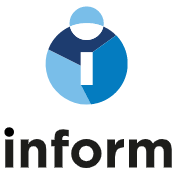Inform-Ayuryog Collaboration
Inform was pleased to have been a partner on the ERC project AYURYOG between 2015-2020. This page highlights some of the fruits of that collaboration from the Inform perspective.
The presentations which follow were produced by Inform in collaboration with Jacqueline Hargreaves (The Luminescent) and highlight some of the project’s outputs and showcase our collaborations with other research projects, scholars and practitioners which have focused on what can be gained from a comparative perspective on how different religious traditions approach health, healing and immortality.
In this video Sarah Harvey (senior research officer, Inform) interviews Suzanne Newcombe, post-doctoral research fellow on AYURYOG and honorary director of Inform on why Inform collaborated on this project and how this collaboration worked in practice.
In the next interview, Prof. V. Sujatha explores the relationship between yoga and ayurveda/siddha as a health intervention in India and in Europe in conversation with Sarah Harvey.
Prof. V. Sujatha is with the Centre for the Study of Social Systems, JNU, New Delhi. Her work has largely focused upon the fields of ‘Sociology of knowledge’, and ‘Sociology of health and medicine with particular reference to traditional systems of medicine’. Some of her recent books are Sociology of Health and Medicine: New Perspectives (Oxford University Press) and Medical Pluralism in Contemporary India (Orient Black Swan; co-edited with Leena Abraham).
Prof. Karl Baier, in conversation with Dr Suzanne Newcombe of Inform, explores the entangled relationship between modern yoga, occultism in South Asia, and the medicalisation of yoga as a health intervention in Europe. Prof. Karl Baier answers:
• How and when did you first realise the occult and yoga were an area of interrelated fields?
• How does the reception of yoga within Europe relate to occultism within South Asia?
• What are some of the key publications you are working on in this area?
• How is occultism in South Asia entangled with different medical ideas, such as mesmerism and meditation, in Europe?
• How does this relate to the medicalisation of modern yoga?
In November 2018, Inform, in conjunction with TRS, King’s College London, held a seminar exploring some of the range of beliefs about and attitudes towards health, healing and the body in different minority religions. The seminar discussed some of the wide variety of religious models of health and healing, and to what extent these are related to what believers actually practice in their attempts to prevent and cure diseases of both the body and the mind. It addressed such questions as:
• What are health and healing?
• What needs healing? (e.g. the body, mind, relationships and/or the natural world?)
• What are the causes of illness?
• How does healing happen?
In this video Professor Eileen Barker introduces some of the broader questions and methods behind ‘Health, Healing and the Body in Minority Religions.’
In this interview Dr Suzanne Newcombe discusses the different ways contemporary yoga practitioners think about their body and how this might aid health and healing.
In the next video, Prof. Carole Cusack, University of Sydney, discusses her research into the movement, health and healing practices of George Ivanovitch Gurdjieff (c. 1866-1949).
Prof. Cusack writes: “G. I. Gurdjieff is often spoken of as one of the foundational figures of modern “secularized” mysticism (Hunt 2003, 225–250), yet he is far less studied than other foundational figures such as Helena Petrovna Blavatsky (1831–1891), co-founder of the Theosophical Society, and Rudolf Steiner (1851–1925), founder of Anthroposophy. Much of Gurdjieff’s biography is speculative, and his teaching (termed the “Fourth Way,” or the “Work”) is contested in terms of its sources (Christian, Sufi, Traditionalism), and its proper scholarly classification (religion, spirituality, esotericism, psychology).”
Dr Mikel Burley, University of Leeds, discusses his paper, “Competing conceptions of immortality and nirvana among interpreters of Buddhism.”
In this interview from the Inform-AYURYOG series, Professor Simon Dein, MD, PhD, consultant psychiatrist and social anthropologist at University College London discusses beliefs and practices relating to religious healing and immortality in the Lubavitcher movement.
In this interview Dr Aled Thomas, Research Fellow at the Open University discusses his research into FreeZone Scientology’s and how they use ‘Techniques of the body’ for health, healing and life extension as well as their concepts and practices around immortality.

Inform is a registered charity, no. 801729. Company no. 2346855. Terms and Conditions

